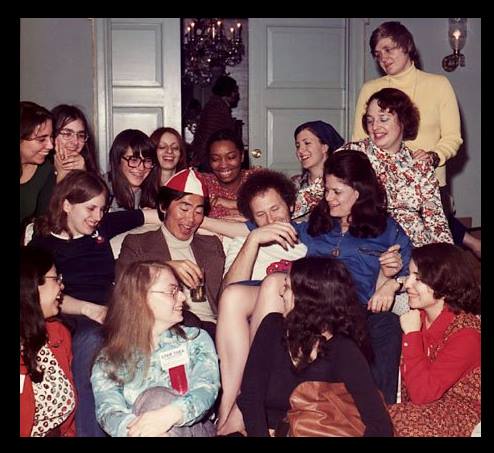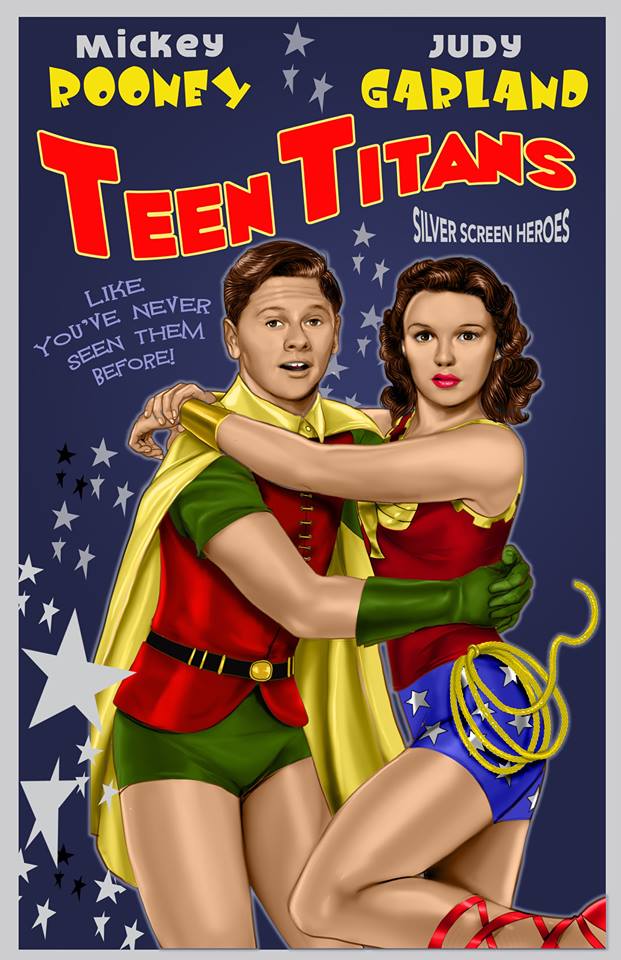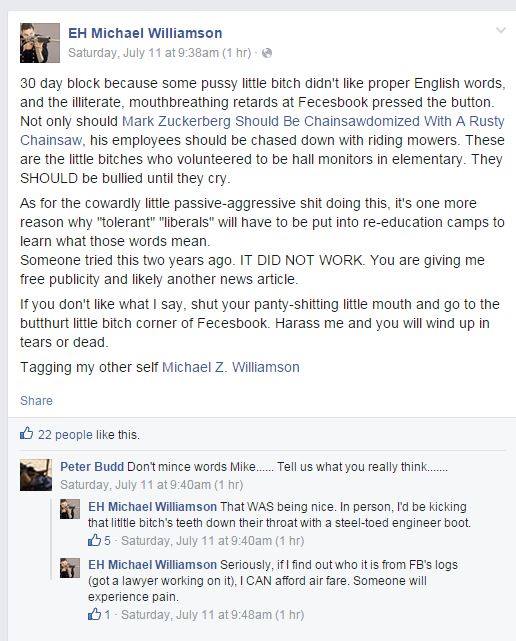(1) COMPLETE WEAPONS BAN AT SUPERCON. Florida Supercon (July 1-4) will not permit any real or replica weapons to be brought into the con. Includes blades, blunt weapons, whips, tasers, or even things that “cause excessive noise levels like vuvuzelas.”
In light of recent events, we have chosen to tighten security around the event and have recently updated many of the rules. This is done to protect our attendees and make sure that everyone may enjoy the convention without concern.
Florida Supercon is dedicated to the safety and security of ALL attendees.
Use common sense and remember what seems harmless to you may appear like a threat to someone else. All attendees must adhere to Florida State Law at all times during the weekend of Florida Supercon, including laws regarding firearms and weapons. If it is illegal outside of the convention, it is illegal inside the convention.
Please read this entire policy before attending Florida Supercon. Failure to follow this policy may result in your removal from the convention without refund. We have a ZERO TOLERANCE FOR WEAPONS.
(2) FAN OF THE SUPREMES. Michael Z. Williamson had this out earlier in the week: “Orlando: The AAR and BFTNP”.
This is going to be part pep talk and part “There there, here’s a foot in your ass.”
The Orlando shooting was not your fault. You bear no guilt and no shame. By embracing guilt and shame you give the terrorists what they want. Stop it. That way lies madness….
MAKING YOURSELF MORE HELPLESS HELPS NO ONE. “I don’t need guns,” you say. I know more about guns than you, and you’re wrong. You may not want any, and that’s fine, that’s your decision to make, FOR YOU, not for me, nor anyone else. “I couldn’t have done anything.” You’re right. So stop trying to Monday Morning Quarterback the whole thing. “Nobody needs an AR15.” Again, you’re wrong, and at this point you should be reminded of the Dunning-Kruger effect.
See this article here: http://www.michaelzwilliamson.com/blog/index.php?itemid=219
Get that? Access to firearms is a constitutionally protected right, and SCOTUS says so, the end.
(3) FINDING DORY FILLS TREASURE CHEST. Yahoo! Movies confirms the latest Pixar film, Finding Dory, set a record for an animated movie, earning many dollars in its worldwide debut.
Some 13 years after Finding Nemo first hit theaters, Pixar and Disney’s sequel Finding Dory made a huge splash, landing the biggest domestic opening of all time for an animated title with $136.2 million from 4,305 theaters….
The previous crown holder for top animated launch was DreamWorks Animation’s Shrek the Third, which debuted to $121.6 million in 2007. Until now, Pixar’s best was Toy Story 3 (2010) with $110.3 million.
(4) MASSIVE SPOILERS. ScreenRant spills all the beans in “The Alternate History of Independence Day Explained”.
Picking up in real-time, ID:R portrays a much different recent history than our own alien invasion-free world. The alternate events that occur following the War of 1996 in Independence Day definitely depict a darker timeline.
Thanks to a big viral marketing campaign, a prequel comic, a prequel novel – Independence Day: Crucible – and various Independence Day: Resurgence clips and trailers released during marketing, this dark timeline has become a little more clear.
Forget the history you thought you knew, and prepare yourself for some spoilers. Here is the full alternate timeline leading to Independence Day: Resurgence.
(5) JEMISIN IN NYT. N.K. Jemisin’s latest “Otherworldly” column for the New York Times Book Review covers new works by Claire North, Jonathan Strahan, Mira Grant, and Malka Older.
The easiest comparison that comes to mind when reading Malka Older’s INFOMOCRACY (Tor/Tom Doherty, $24.99) is to its cyberpunk forebears. There’s an obvious line of inheritance here from William Gibson and Neal Stephenson to Older’s futuristic world of global information networks and cool, noirish operatives vying for power and survival. Yet there’s also an inescapable “West Wing” vibe to the book. This probably owes to the fact that Older is herself a global player, with impressive bona fides in the field of international affairs. This lends the story a political authenticity that’s unusual in the field of cyberpunk, and very welcome.
(6) PULP FIRST CONTACT. James Davis Nicoll explains why he started Young People Review Old Science Fiction.
Young People Read Old SF was inspired by something award-winning author Adam-Troy Castro said on Facebook.
nobody discovers a lifelong love of science fiction through Asimov, Clarke, and Heinlein anymore, and directing newbies toward the work of those masters is a destructive thing, because the spark won’t happen. You might as well advise them to seek out Cordwainer Smith or Alan E. Nourse—fine tertiary avenues of investigation, even now, but not anything that’s going to set anybody’s heart afire, not from the standing start. Won’t happen.
This is a testable hypothesis! I’ve rounded up a pool of younger people who have agreed to let me expose them to classic works of science fiction1 and assembled a list of older works I think still have merit. Each month my subjects will read and react to those stories; I will then post the results to this site. Hilarity will doubtless ensue!
First in the barrel is “Who Goes There?” by Don A. Stuart (John W. Campbell). The responses are quite articulate and the young readers weren’t too rough on old John.
This reminds me of a “teens react” YouTube series – James may be missing out on millions of views by doing this in text!
(7) YELCHIN OBIT. Anton Yelchin, Star Trek’s Chekov, was crushed to death by his own car this morning.
Anton Yelchin, the Russian-born actor who played Chekov in the new Star Trek films, has been killed by his own car at his home in Los Angeles, police say.
It struck him after rolling backwards down the steep drive at his Studio City home, pinning him against a brick postbox pillar and a security fence.
He died shortly after 01:00 (08:00 GMT) on Sunday.
Yelchin, 27, also appeared in such films as Like Crazy (2011) and Green Room (2015).
The third movie in the rebooted series, Star Trek Beyond, comes out in July.
(8) DECORATE OR EDUCATE? The University of Glasgow’s Robert MacLean ponders the question, “How can we be sure old books were ever read?”
Owning a book isn’t the same as reading it; we need only look at our own bloated bookshelves for confirmation. You may remember this great cartoon by Tom Gauld doing the rounds on social media a year or two ago. We love it because, in it, we can clearly see our own bookshelves and our own absurd relationship with books: unread, partially read and never-to-be-read books battling it out for space with those we’ve successfully tackled. With our busy lives and competing demands on our leisure time, the ever-growing pile of unread books can even sometimes feel like a monument to our failure as readers! Although this is surely a more common anxiety in a time of relatively cheap books and one-click online shopping we should be reassured that it’s nothing new: Seneca was vocal in criticising those using “books not as tools for study but as decorations for the dining-room”, and in his early 16th century sermons Johannes Geiler (reflecting on Sebastian Brant’s ‘book fool’) identified a range of different types of folly connected with book ownership that included collecting books for the sake of glory, as if they were costly items of furniture1. When we look at our own bookshelves we can fairly easily divide the contents into those we’ve read and those we haven’t. But when it comes to very old books which have survived for hundreds of years how easy is it to know whether a book was actually read by its past owners? ….
Dog-ears
Different readers have different methods of physically marking their reading progress in a book. Once upon a time (I confess!) I was a dog-earer, who turned over the top corner of the page to mark my place; now – evidence of where I do much of my reading – I tend to use a train ticket as a bookmark. In this fascinating blogpost Cornelis J. Schilt, editor of the Newton Project, describes how one famous reader of the past, Isaac Newton, used large and often multiple dog-ears to act as mnemonic aides reminding him of specific words and references in books he was reading.
(9) TODAY IN HISTORY
- June 19, 1958 — Wham-O filed to register Hula Hoop trademark.
(10) LOVE IS ALL YOU NEED. Word of the Hugo Voter Packet finally reached readers of Sad Puppies 4: The Embiggening on Facebook.
The voter packet is out! Remember, ?#?Wrongfans read before they cast their votes, ?#?trufen just vote how they’re told to NoAward.
(11) ALPENNIA ACHIEVEMENT UNLOCKED. Heather Rose Jones bids you “Welcome to the New Improved Expanded Alpennia Website!”
Quite some time ago (nearly two years, I think), I decided I needed a more professional looking website for my writing activities. And it could have all sorts of bells and whistles! Book reviews! Forthcoming publications! Future convention schedules! I could not only move the Lesbian Historic Motif Project to the new site, but I could make it the primary home of my blog. And then it could push content automatically to LiveJournal and Twitter and Facebook. And the LHMP could have improved functionality, with better tagging, and a dynamic index page, and…and everything
(12) KEEP ‘EM CLICKING. “If Amazing Stories Were A Hugo Finalist, My Love: The Top 25 Posts of All Time” – Steve Davidson counts off his site’s biggest traffic magnets.
At the top of the list:
(13) SDCC LIVE. Syfy is starting to beat the drum for its upcoming Syfy Presents Live From Comic-Con broadcast.
Syfy will invade the world’s largest pop culture convention this summer with a three-night telecast directly from the heart of San Diego Comic-Con. The special – Syfy’s first-ever live broadcast from Comic-Con – will air on the network Thursday, July 21 through Saturday, July 23 at 8/7c.
Each night, SYFY PRESENTS LIVE FROM COMIC-CON will bring the Con’s non-stop action directly to viewers across the country, featuring celebrity interviews, breaking news and behind-the-scenes reports. The hosted live broadcast will highlight the biggest stars, top franchise reveals, panel news, exclusive sneak peeks of the hottest films, as well as audience interaction, games, party coverage and much more.
(14) ACKERMAN CENTENARY PROJECT. There’s a Kickstarter appeal for a 4E Ackerman tribute: “Famous Monsters is making a star-studded comic book anthology of weird & Terrifying tales in honor of Forry Ackerman’s 100th Birthday” has raised $3,875 of its $10,000 goal with 42 days remaining.
The year 2016 marks what would have been the late Forrest J Ackerman’s 100th Birthday. Famous Monsters and its comic book publishing imprint, American Gothic Press (AGP), are celebrating Forry’s centennial with an original hardcover anthology called TALES FROM THE ACKER-MANSION, to be released in October at our ALIEN CON event in Silicon Valley, CA!
Famous Monsters is a big name, but we are a small company. Despite our well-known magazine and iconic logo, we are a boutique operation. Still, we manage to make an enduring magazine, cool comic books, neat merchandise, run film festivals, and now are producing a major convention in October. As we spin several creative plates in the air at the same time, we are always mindful of “Uncle Forry” and the imaginative endeavors he championed. For Forry’s centennial celebration, we thought TALES FROM THE ACKER-MANSION would be a super-cool tribute, but in order to pull it off, we need help! That’s why we are doing FM’s first-ever Kickstarter/crowdfunding effort to cushion the incredible launch costs of such a project (more details at the end under RISKS & CHALLENGES)….
The magical thing about Forry is that he connected people from all fields and industries — be it film, music, comics, or literature. In the spirit of that connection, we have sought to make TALES FROM THE ACKER-MANSION a truly eclectic offering.
John Carpenter: “For TALES FROM THE ACKER-MANSION, John Carpenter channels O. Henry in an original short horror folk-tale, “The Traveler’s Tale”. It tells the story of an old British traveler who steals a cursed bejeweled box from a Middle Eastern bazaar. Written by the Horror Master himself!”
William F. Nolan: “His contribution for TALES FROM THE ACKER-MANSION is ‘the story of how Forrest J Ackerman and the robot from Fritz Lang’s METROPOLIS became acquainted.’”
John 5: “He currently plays for Rob Zombie on tour and in the studio. John has also produced numerous solo records — one of which, ‘Careful with that Axe’, shares the title of his story for TALES FROM THE ACKER-MANSION, a surreal rockstar fable about a Telecaster guitar that seems to give a young boy special powers.”
Richard Christian Matheson: “His short story ‘Barking Sands’ is appearing in TALES FROM THE ACKER-MANSION as illustrated prose”.
Joe R. Lansdale: “His short story ‘The Dump’ is being adapted for the anthology by MARK ALAN MILLER.”
Also included:
- An apocalyptic monster truck comic from creator Cullen Bunn (HARROW COUNTY) and artist Drew Moss (TERRIBLE LIZARD)
- A painted robot tale from comics writer and artist Ray Fawkes (CONSTANTINE)
- A cannibal story in the style of old Creepy and Eerie from HELLRAISER: BESTIARY’s Ben Meares and Christian Francis
- Stories by FM Editor David Weiner and AGP Editor Holly Interlandi
- An unconventional coming-of-age story by reknowned fantasy author Nancy Kilpatrick, illustrated by Drew Rausch (EDWARD SCISSORHANDS)
- A Golden Age noir-style romp from Victor Gischler (X-MEN)
- A Sci-Fi alien saga by Trevor Goring (WATERLOO SUNSET)
- A legend about lethal knitting needles from Travis Williams and Jonathan La Mantia
- Art pinups by many Famous Monsters cover artists
(15) SMASHUPS. ScreenRant believes these are the “13 Best Comic Book Crossovers of All Time”.
More often than not, this means comic creators throw together as many popular characters as they can get their hands on. It’s good business to throw characters together that no one expects to see sharing a page; companies as adversarial as DC and Marvel have been known to join forces for a good, crazy story. This has led to more than a few fantastic crossover stories over the course of comic book history….
- JLA/Avengers
…Arguably the most famous of all crossover comics, JLA/Avengers was actually the result of over thirty years of negotiations between the two companies, as the initial plans had been made in 1979 before plans were put on hold due to editorial differences between Marvel and DC’s higher ups. For a time it seemed as if JLA/Avengers was the sign of more cooperation between the two comics publishers, but there hasn’t been any further successful attempts to unite the two brands since.
(16) COMIC SECTION. Tom Gauld has been cracking them up on Twitter
A recent cartoon featuring @MarsCuriosity for @newscientist pic.twitter.com/BSkA9CqX7n
— Tom Gauld (@tomgauld) April 10, 2016
'James Bond is driving in his underwater car…' (My cartoon for today's @guardianreview) – pic.twitter.com/JGOUE89yLm
— Tom Gauld (@tomgauld) June 18, 2016
[Thanks to John King Tarpinian, Andrew Porter, James Davis Nicoll, Cat Eldridge, and JJ for some of these stories. Title credit goes to File 770 contributing editor of the day Heather Rose Jones.]







